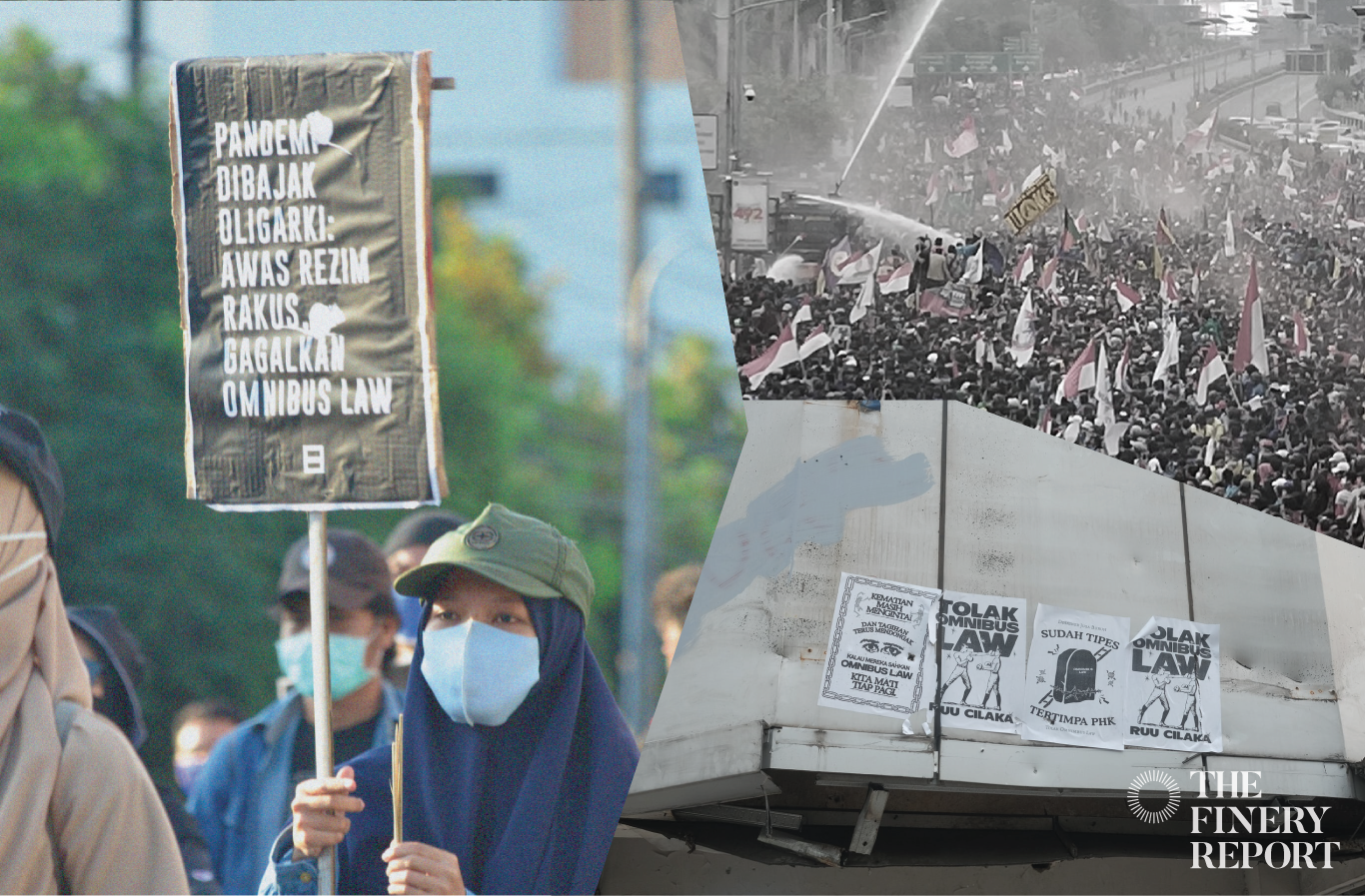Omnibus Law update: Pay
Read in Indonesian
Revisions continue to be made to Omnibus Law on Job Creation, which was passed by the House of Representatives in October 2020. The legalisation of the law sparked controversy throughout the country, with students and youth-led organisations, as well as labour unions, taking to the streets to voice their discontent.
On 17 February, the Ministry of Law and Human Rights announced 45 government regulations and 4 presidential decrees as implementing regulations of the law. Government regulation is an extension of law. Simply put, law is the vessel, and government regulation is the fuel.
One of the government regulations, namely Government Regulation No.36/2021 on Wages, will affect workers. Here are some of the points:
Hourly wage for part-time workers
When it comes to the Job Creation Law, hourly wage becomes a hot topic of its own. There were talks about the possibility of the law affecting the whole remuneration system by legislating hourly wages.
Article 16 of Government Regulation No.36/2021 on Wages stipulates that hourly wages are reserved for part-time workers only. The article also specifies a formula for both employers and workers to calculate hourly pay, namely monthly wage divided by 126.
Both employers and workers are allowed to set their own agreement, but the pay should not be lower than the calculation using the formula. Both parties could also revise the formula if there are significant changes in the average working hours.
Minimum wage
One of the most evident changes we could see in the new set of regulations is the determinants of minimum wage. Government Regulation No.78/2015 on Manpower Wage stipulates that the adequate standard of living for the worker became the determinant of minimum wage.
Article 25 of Government Regulation No.36/2021 stipulates that minimum wage is determined by economic and employment conditions. Economic conditions refer to economic growth and inflation, while the latter refers to purchasing power parity, employment rate and the median wage.
Article 24 Paragraph (1) states that minimum wage applies to workers with less than one year working experience in the particular company. Paragraph (2) stated that after one year, these workers are eligible to be paid in accordance with the structure and scale of wages.
It is also worth noting that postponing the annual minimum wage adjustment is no longer permitted, except for micro and small businesses, which use a different method to determine the minimum wage. Article 90 Paragraph (2) of the Labour Law allows entrepreneurs who are unable to pay minimum wage to postpone paying the minimum wage. However, this policy was deleted in the Job Creation Law.
Article 61 of Government Regulation No.36/2021 regulates situations wherein a company fails to pay their employees on time. When a company fails to pay the workers within the specified deadline, the company shall be imposed of fine at 5% of the workers’ wage, every day, from the fourth day after missing the deadline until the eighth day. If, after the eighth day, the wage is still unpaid, the employer shall be imposed of additional fine of 1% of the workers’ wage with no more than 50% of the wage that should have been paid.
The structure and scale of wages
The structure and scale of wages are basically a company’s guidelines for regulating wages for their employees in accordance with their position. According to Article 21 of Government Regulation No.36/2021, the guidelines should be designed in accordance with the company’s capability and productivity. This information should also be personally disclosed to workers.
Minimum wage for micro and small businesses
Some of us might have been wondering about how micro and small business owners would determine the wage for their workers. Article 36 of Government Regulation No.36/2021 states that the minimum wage for workers in micro and small businesses should be at least at 50% of the average public consumption or 25% above the poverty line at the provincial level. However, at the end of the day, the wage is determined by the agreement between the business owners and the workers.













